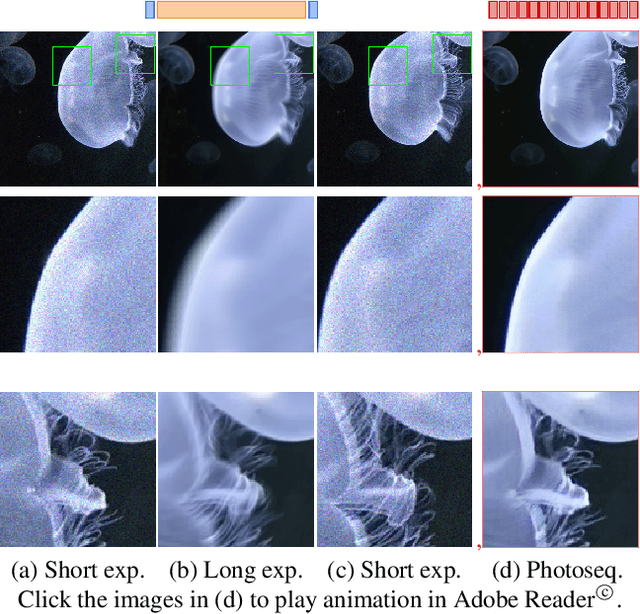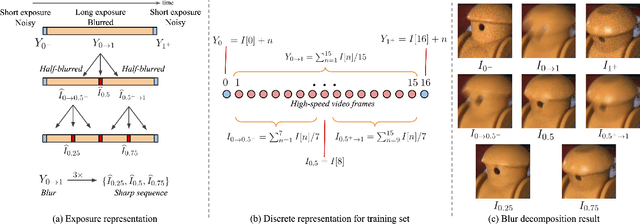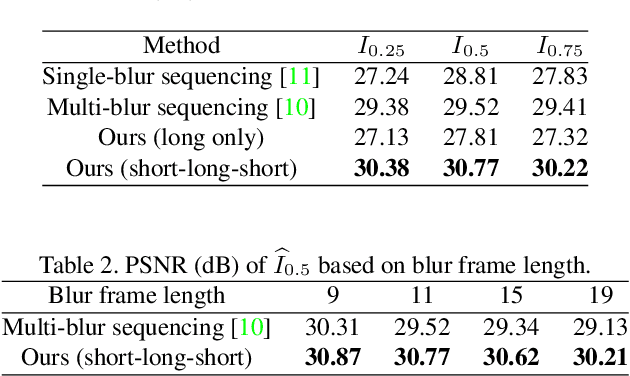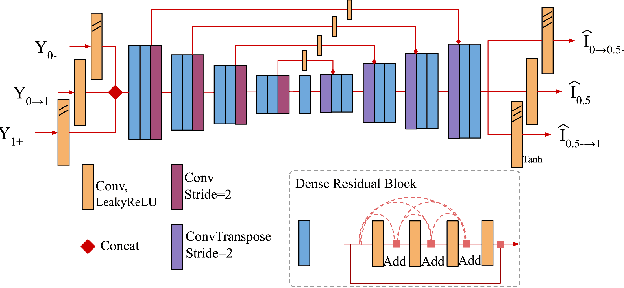Hamid Sheikh
MFSR-GAN: Multi-Frame Super-Resolution with Handheld Motion Modeling
Feb 28, 2025



Abstract:Smartphone cameras have become ubiquitous imaging tools, yet their small sensors and compact optics often limit spatial resolution and introduce distortions. Combining information from multiple low-resolution (LR) frames to produce a high-resolution (HR) image has been explored to overcome the inherent limitations of smartphone cameras. Despite the promise of multi-frame super-resolution (MFSR), current approaches are hindered by datasets that fail to capture the characteristic noise and motion patterns found in real-world handheld burst images. In this work, we address this gap by introducing a novel synthetic data engine that uses multi-exposure static images to synthesize LR-HR training pairs while preserving sensor-specific noise characteristics and image motion found during handheld burst photography. We also propose MFSR-GAN: a multi-scale RAW-to-RGB network for MFSR. Compared to prior approaches, MFSR-GAN emphasizes a "base frame" throughout its architecture to mitigate artifacts. Experimental results on both synthetic and real data demonstrates that MFSR-GAN trained with our synthetic engine yields sharper, more realistic reconstructions than existing methods for real-world MFSR.
Photosequencing of Motion Blur using Short and Long Exposures
Dec 11, 2019



Abstract:Photosequencing aims to transform a motion blurred image to a sequence of sharp images. This problem is challenging due to the inherent ambiguities in temporal ordering as well as the recovery of lost spatial textures due to blur. Adopting a computational photography approach, we propose to capture two short exposure images, along with the original blurred long exposure image to aid in the aforementioned challenges. Post-capture, we recover the sharp photosequence using a novel blur decomposition strategy that recursively splits the long exposure image into smaller exposure intervals. We validate the approach by capturing a variety of scenes with interesting motions using machine vision cameras programmed to capture short and long exposure sequences. Our experimental results show that the proposed method resolves both fast and fine motions better than prior works.
 Add to Chrome
Add to Chrome Add to Firefox
Add to Firefox Add to Edge
Add to Edge